The Geneva Centre for Security Policy podcast is your gateway to top conversations on international peace and security. It will bring you timely, relevant analysis from across the globe with over 1,000 multi-disciplinary experts speaking at 120 events and 80 courses every year. Click subscribe, download on your favourite podcast player, get notified each time we release our weekly episode.
Podcast Episode 15
Host: Hello, my name is Claire Heffron, and welcome to this episode of the Geneva Centre for Security Policy podcast on the latest issues advancing peace, security and international cooperation.
Host: The Middle East and North Africa is a fragmented region. Its ongoing relationship with Europe is still important in terms of security, politics and economics. We discuss the future of this relationship with Kristina Kausch, Senior Resident Fellow at the German Marshall Fund of the United States. The Biological and Toxin Weapons Convention was the first multilateral treaty, categorically banning a class of weapon. The treaty prohibits the development stockpile production or transfer of biological agents and toxins that have no justification for protective or peaceful use. It’s still a contentious issue today. We spoke to Daniel Feakes, Head of the Implementation Support Unit for the Biological Weapons Convention, United Nations Office for Disarmament Affairs in Geneva and Ms Valeria Santori, consultant at the ISU for the BWC.
Host: Although the Middle East plays an important role in Europe, bilateral relations still form the basis for most of its diplomatic actions. The current dynamics of both regions mean that there's constant changes with various nations. We discuss these issues with Kristina Kausch, Senior Resident Fellow at the German Marshall Fund of the United States.
Firstly, what is the existing relationship between Europe and the Middle East and North Africa?
Ms Kristina Kausch: Well, there's not one relationship between Europe and the MENA and the Middle East and North Africa region. Well, first of all, on the European side, there is European Union that has relationships with all these countries, and also as a multilateral framework. And then there are different sub regions, right, the relationships that we may have with the Gulf, the Persian Gulf are very different than what we may have with the Maghreb. the interests of our different member states have specific interests in countries. So you can't really reply to this in a generic way. But I would say that right now, if you want to give a generic answer, right now, the European thinking on the MENA region is very much focused on security is very much focused on how to solve the three open warfare conflict that we have, and in the southern neighbourhood, which are in Yemen, in Libya and Syria.
Host: How is it evolving?
Ms Kristina Kausch: The MENA region was hit by popular uprisings in 2011. It became very clear, very fast to everyone what the challenges were and what these people were demanding. These protests were grown on a bed of authoritarian governance, of non accountability of bad economic situations, youth unemployment, rampant corruption, and so on. So initially, essentially everything, structural challenges can be remedied just by accountable governance. All of these challenges are still there, if not worse than before 2011. So this is big, at the same time, some sub regions of the region, for example, the richer states, the states that have oil and gas face additional challenges that they have to diversify their economies, as the end of the oil era is nearing, and they will, in the mid and long run, no longer have the money to pay off their constituencies. So, there is a host of necessary reforms coming up. The question is, what can Europe do to motivate these reforms? And that is an open question that we haven't really answered.
Host: And what are the main challenges and opportunities facing the manor region, short and long term?
Ms Kristina Kausch: The greatest opportunity for Europe is, I think To support Tunisia, which is the one example of, of a democratic country in the Arab world, that despite all its difficulties, is still flourishing, that is an example for many other countries. The interest is comparatively low. If you are considering what is the symbolic meaning of Tunisia, in my view because Tunisia doesn't have any regional power assets, it doesn't have oil. It doesn't have anything that is in the short term useful to any of the EU member states. At the moment, it is merely a symbolic value, which doesn't pay off right now. However, in investing in this country and investing in a democratic precedent in the Arab world, will pay off as maybe if Tunisia wants to consolidate, it takes on a sort of more significant regional role. And also, there's other countries in particular, in the Maghreb, and in the nearer Levant, that are less sort of, if not democratic there are moving into that direction such as Jordan and Morocco, where the European Union still has significant influence and significant leverage, and that is where they could and should invest their resources to build relationship and push these countries towards more accountable government in order to, you know, help establish like a little nucleus of, of better governance of hands also better cooperation on regional issues, which is really what the European Union is interested in and so make an investment in the good example. It's making investment in those places where we have more positive examples of governance are flourishing.
Host: Is there anything misunderstood about the region?
Ms Kristina Kausch: On each of the policies, each and every single one of the pressing policy issues that you have there? Is there different perspectives not only from the southern and the northern shores of the Mediterranean but even within the EU? So you don't even need to go that far from the south for a long time, the European Union has not really listened much to our voices what the public particularly wants. I think this is a lesson that the 2011 uprisings have taught the EU very strongly that you cannot only cooperate with governments, you cannot only listen to governments, you also need to listen to what the people want. And at the same time, this lesson has not really that much been implemented because they keep just mainly listening to the government's and also there is the element where from the government side, the government's often accuse EU member states, particularly those with a colonial history of still trying to push their prerogative in the region of having vested interests of favoring their own countries and it's in a way, perpetuating their sort of global colonial prerogative in the region and trying to basically stay dominant. That is a common criticism. And then there are simply different perspectives, for example, in our relations with the countries of the region right now in the present situation, you can often see that the European Union is stressing very much the question of migration. They want the countries to, you know, do more to behave more forcefully when it comes to stopping illegal migration northwards. They want them to sign EU mission agreements, whereas, for example, the southern partners, what they want is visa facilitation. They want their students to be able to come to study in the EU. So there's a little bit of a sort of parallel conversation going on, which is not so much a question of misunderstanding. I think both sides know exactly what the other side wants. They just don't agree.
ADVERTISEMENT:
Today's security challenges are multifaceted and often span different fields. Effective contemporary policymaking must address the major issues and threats in the international arena while simultaneously anticipating future challenges in the medium and long term. In our program, we analyse the broad range of factors that will shape tomorrow's world, including transformative technologies, the interplay between neuroscience and international affairs and outer space security. The Geopolitics and Global Future Symposium has been created to examine the connections between the multiple dimensions of global security in order to understand, prepare for and respond to current and future challenges. The symposium will analyse risks and threats in global and outer space security, transformative technologies and use insights from neuroscience for an all round understanding of international affairs. Participants will learn from world leading scholars who are pushing the boundaries to develop fresh perspectives and ideas in global security, we can help you tackle emerging issues and global security with a creative and agile approach our interdisciplinary expertise in outer space security, transformative technologies, and neurophilosophy will equip you with the skills and knowledge to develop proactive rather than reactive strategies in a rapidly changing world. Join us at the Geopolitics and Global Future Symposium and learn how to navigate confidently the next big challenges of a complex security landscape.
Host: Biological weapons intel the utilisation of contaminants or infectious agents that are biological in origin, they also refer to as “germ warfare”, there is no credible way to trace the development of biological weapons in any country. Earlier we spoke to Daniel Feakes, Head of the Implementation Support Unit for the Biological Weapons Convention, United Nations Office for Disarmament Affairs in Geneva and Ms Valeria Santori, consultant at the ISU for the BWC.
Daniel Feakes: The biological weapons convention is an international treaty negotiated by states back in the early 1970s. And the main objective of the Biological Weapons Convention is to prevent the use of biological weapons to prevent states from using biological weapons. So it has a ban treaty. Basically, it bans states from possessing and using biological weapons. And it has various provisions for having investigations and for states to be providing assistance in case biological weapons are used.
Valeria Santori: And how many states participated in this treaty?
Daniel Feakes: (As of March 2020, 183 States Parties and 14 non-parties) to the convention, so it's almost universal.
Valeria Santori: That's quite a big number
Daniel Feakes: Yeah, there's 17 countries that haven't joined the convention yet. And then we add our team are working other countries to encourage them to join the convention as well
Valeria Santori: Because the objective is to have for the whole community
Daniel Feakes: Exactly the ultimate objective would be to have all all countries in the world to be members of the convention so that then the ban and the norm against using biological weapons would be universal.
Valeria Santori: And how does the convention actually work? And how is it practice put into operation?
Daniel Feakes: It's a very short convention. It's not a very detailed convention at all. It's only four pages long. And it's mainly an agreement between states, it doesn't create any big organization. It doesn't create any institution as such. So as I said, we're a very small team. We are only three people working here in Geneva on the Biological Weapons Convention. And how it really works as it works through having meetings, big diplomatic meetings that take place here in the UN building in Geneva. And the member states come together in those meetings. They discuss different issues relating to biological warfare. They discuss how to implement the convention. And then sometimes they make agreements every five years they have something called a review conference, which is when they can actually take decisions and come to agreements about how to perhaps improve the implementation of the convention or how to do something differently. So it's really a diplomatic instrument. And it really works through multilateral diplomacy, which takes place here in Geneva. And then we, in our unit, support those meetings,
Valeria Santori: Which is quite an endeavor.
Daniel Feakes: It is exactly yeah, it's a big job. We're called an implementation support unit. So when we can we support states to actually implement the convention, but because we're only three people, yeah, it's very hard to support 180 States Parties all the time. So there's a limit to what we can do in terms of funding and financing obviously.
Daniel Feakes: And so one of the issues that's much discussed at the moment by by the member states to the convention is the issue of biological weapons and if biological weapons were actually used, for example, by another country against another country, or perhaps as people talk about these days about bioterrorism, so if terrorists actually use biological weapons. So perhaps you can say something about how the convention and how the international community would respond if biological weapons were used perhaps by terrorists or by a country?
Valeria Santori: Yeah, well, as much as we try to prevent such an occurrence from happening, we cannot exclude that, unfortunately, one day, this could be an event and we need as a community to be prepared for such circumstances. So, as regards the Biological Weapons Convention, there is an Article which provides that states can request assistance from other states parties in case they believe they've been the object of an attack with biological weapons by others. And there are mechanisms in the international community to help states cope with a situation like that, there are organisations that have a specific mandate to help. One of them is the World Health Organization, for example, and there are other actors that would be on the ground. You mentioned before the Biological Weapons Convention does not establish an international organisation as a unit, which has a limited mandate. And this brings me to the consideration that there is no agency at the moment, which has a leading overall coordinating role in case of the use of biological weapons. So it is very important that the various actors that would be there to help states respond to the use of biological weapons are well coordinated so that their action is effective. And at the moment, there are efforts that are being pursued to make sure that this cooperation works to the best possible.
Host: Well, that's all for today's podcast for the GCSP. Thanks for listening. And thank you to Kristina Kausch, Daniel Feakes and Valeria Santori for joining us. Join us again next week to hear all the latest insights on international peace and security.
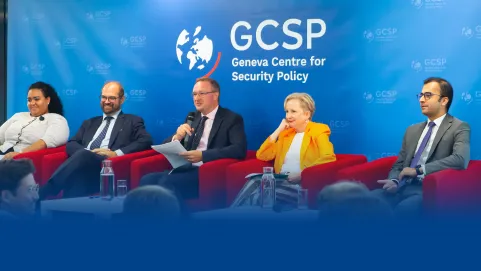 Europe-MENA relations and other stories
">
Europe-MENA relations and other stories
">
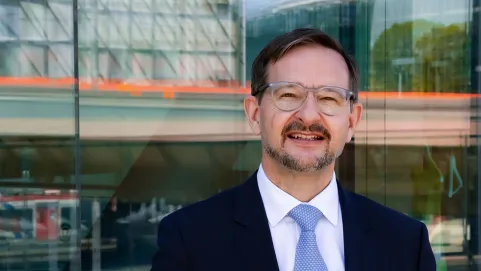 Europe-MENA relations and other stories
">
Europe-MENA relations and other stories
">
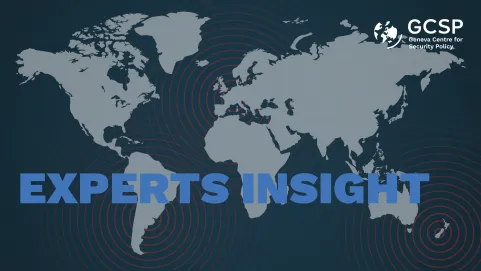 Europe-MENA relations and other stories
">
Europe-MENA relations and other stories
">
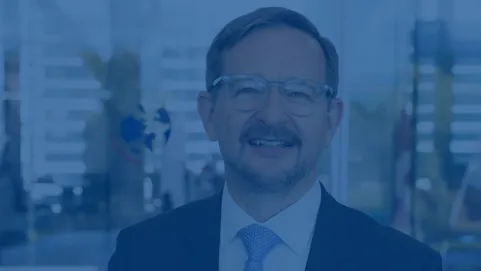 Europe-MENA relations and other stories
">
Europe-MENA relations and other stories
">
 Europe-MENA relations and other stories
">
Europe-MENA relations and other stories
">
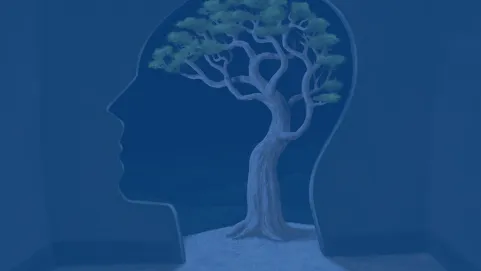 Europe-MENA relations and other stories
">
Europe-MENA relations and other stories
">
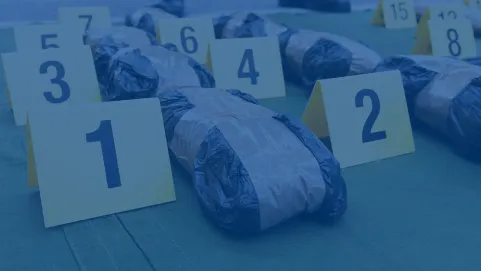 Europe-MENA relations and other stories
">
Europe-MENA relations and other stories
">
 Europe-MENA relations and other stories
">
Europe-MENA relations and other stories
">
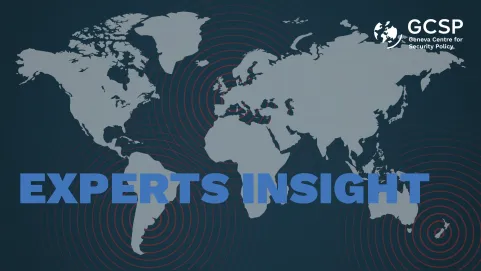 Europe-MENA relations and other stories
">
Europe-MENA relations and other stories
">

